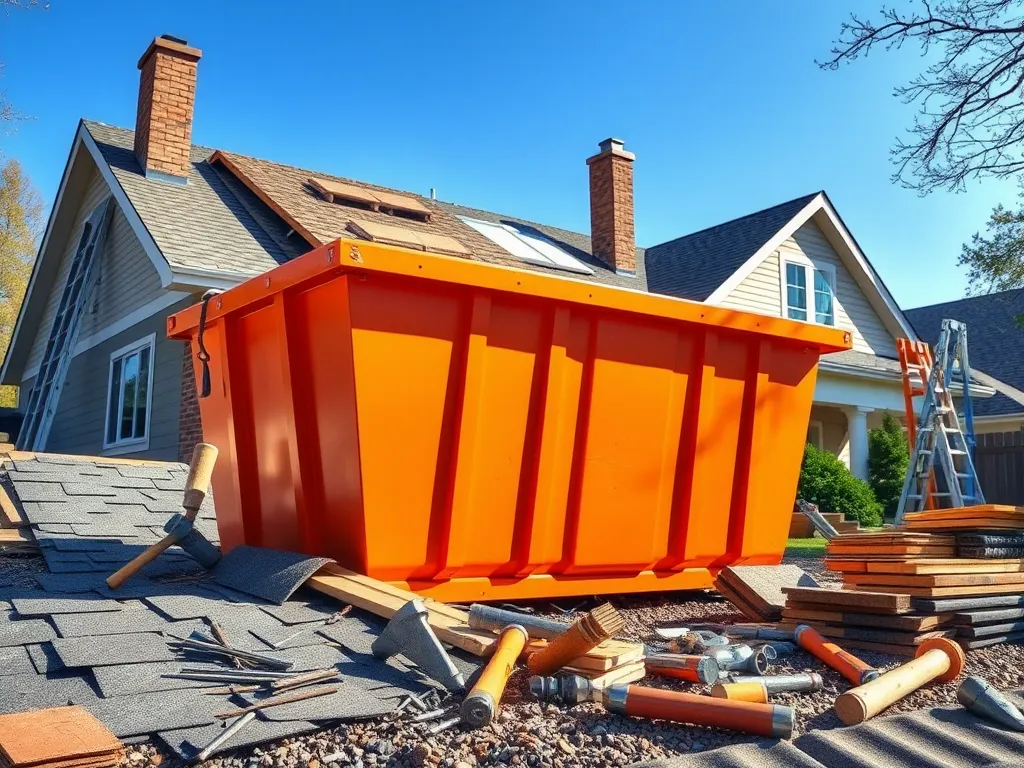Essential Guide to Dumpster Rental for Roofing Projects

Understanding Dumpster Rental for Roofing Projects
When undertaking a roofing project, whether it's a minor repair or an extensive overhaul, managing debris and waste can be a significant challenge. That's where dumpster rental for roofing comes in. This service provides an efficient solution for disposing of shingles, wood, and other materials, helping homeowners and contractors keep their work area clean and organized.
Dumpster rental for roofing is essential not only for maintaining a tidy job site but also for ensuring safety and compliance with local regulations. By renting a dumpster, you eliminate the hassle of transporting materials to a landfill and can focus on the task at hand. There are various sizes and pricing structures available for dumpster rental, catering to different project scales and budgets.
When planning for dumpster rental for roofing, it’s crucial to consider the size of the dumpster that aligns with your project’s needs. For small repairs, a smaller dumpster may suffice, while larger projects may require a substantial dumpster to accommodate significant waste. Understanding the scope and scale of your project will help in selecting the right dumpster size and ensuring a smooth rental process.
Moreover, the average cost of dumpster rental for roofing can vary based on factors like size, weight limit, and location. It’s essential to gather quotes from several rental companies and inquire about additional fees that might be applied for certain materials. This will aid in budgeting accurately for the rental and help avoid unexpected expenses during your project.
For businesses seeking efficient waste management solutions, the City Of Oxnard offers a comprehensive range of services.
Finally, compliance with local regulations concerning permits for dumpster rental is critical. Some localities require permits for placing a dumpster on a public street or space, while others have restrictions on where dumpsters can be situated. Understanding these regulations will help you avoid fines and ensure a seamless dumpster rental experience.
Choosing the Right Dumpster Size
For minor roofing repairs, a small dumpster (10-15 yards) is usually adequate. This size can hold materials from a few small roofing jobs, making it the most economical choice if you're only replacing a few shingles or fixing a section of your roof.
For medium-sized roofing projects like reroofing an average-sized home, a medium dumpster (20-30 yards) is recommended. This size can accommodate the debris generated from the removal of older roofing materials and the installation of new ones, allowing for a more efficient cleanup process.
For comprehensive roofing replacements, large dumpsters (30 yards and above) are necessary. These dumpsters provide ample space for significant amounts of waste, allowing contractors to dispose of materials efficiently without the need for multiple trips to the landfill.
Pricing and Cost Factors
The average cost of dumpster rental for roofing projects can range from $300 to $600, depending on size and rental duration. Prices may vary based on geographic location, so it’s vital to shop around and compare quotes to find the best deal.
Additionally, be aware of potential additional fees associated with specific roofing materials. Some waste types may incur surcharges, particularly if they are deemed hazardous or require special handling. Always clarify these details with your rental company before signing a contract.
To budget effectively for your dumpster rental, consider factors such as the project's scale, the expected volume of debris, and the duration of the rental. This will help to create a realistic financial plan for your roofing project, minimizing surprises down the road.
Permits and Regulations
Permits for dumpster rental may be necessary depending on the laws in your area. If the dumpster will be placed on a public roadway or property, acquiring a permit ensures compliance and helps you avoid potential fines.
Local guidelines can dictate where dumpsters can be placed, especially in residential areas. It’s advisable to consult with your municipality's rules to avoid placing a dumpster in a prohibited area or blocking driveways and sidewalks.
Abiding by local regulations and applying for permits where necessary will help you avoid hefty fines and ensure a hassle-free renovation project, leading to timely completion and satisfaction with the work done.
Best Practices for Loading a Dumpster
Loading roofing materials into the dumpster should be done efficiently to maximize space. Begin with larger items and evenly distribute weight to prevent shifting while transporting. Always keep the materials below the top edge of the dumpster to avoid overloading.
Managing weight limits in dumpsters is also crucial. Each dumpster size comes with specific weight limits, and exceeding these can lead to additional fees or even refusal of service. Be mindful of the weight of different materials, particularly those like shingles that can add up quickly.
Safety is paramount when loading and unloading materials. Always wear proper protective gear and be cautious while handling heavy items or climbing ladders. Practice good lifting techniques to avoid injury, and secure the area around the dumpster to prevent accidents.
Environmental Considerations
Recycling roofing materials can significantly reduce waste in landfills. Many dumpster rental services offer recycling options that segregate recyclable roofing materials, allowing for an eco-friendly disposal method and helping conserve resources.
When seeking dumpster rental options, inquire about eco-friendly services available in your area. Some companies focus on sustainable practices that prioritize recycling and responsible waste management, which can support environmentally conscious projects.
Proper disposal of hazardous materials, such as asbestos or treated wood, is critical for compliance with safety regulations. Always disclose what materials will be disposed of to your rental service to ensure they provide the appropriate disposal methods for potentially hazardous roofing waste.
